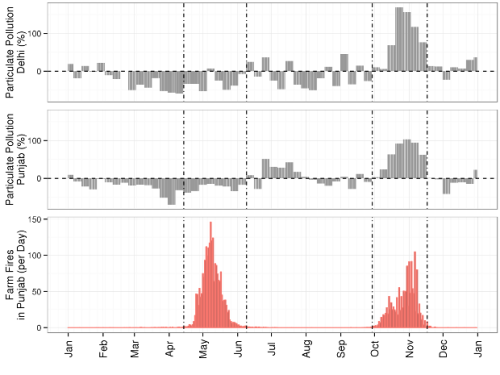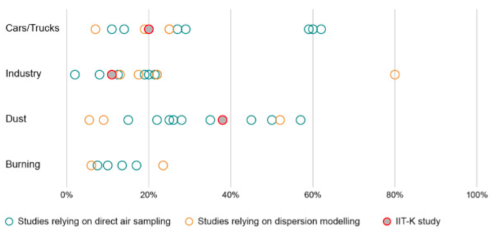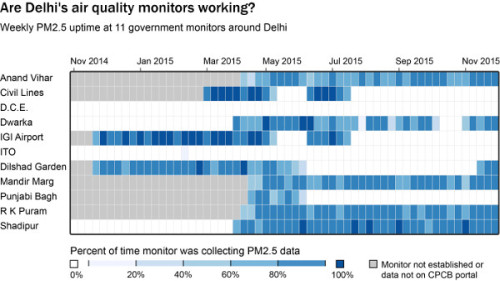What can we do about Delhi’s poisonous air?
The air in India’s capital has reached new levels of toxicity. A series of articles by EPoD authors explores causes and solutions.
Year-round, Delhi surpasses the World Health Organization’s guidelines for acceptable levels of particulate air pollution – the fine soot and other suspended pollutants that cause a number of life-threatening illnesses. But in autumn, levels reach even higher due to a combination of factors: farm-burning in neighboring states, climate-related temperature inversions over the city, even the fireworks set off to celebrate Diwali, the Hindu festival of lights that fell on 30 October this year.
At ten times the WHO recommended limit (there is no “safe” level of particulates) November’s unprecedented pollution prompted school closures and made headlines around the world, including in The Wall Street Journal, the BBC, and The Economist, not to mention the Indian media.
EPoD has been formulating policy responses to India’s air pollution crisis. In addition to a long-term collaboration with the Central Pollution Control Board on improving industrial monitoring, we have been looking at air quality indexes in Delhi and fielding ideas for how to clear the air. We have written about some of these ideas in our column on IndiaSpend, a data journalism website. Click the links below to read more, and contact epod@Hks.harvard.edu if you are interested in supporting this policy research agenda.
Not all pollution comes from within the city. Farm fires in surrounding states cause measurable spikes, and it may take smart policy interventions to extinguish them. Rohini Pande and Anish Sugathan looked at options.

Air quality varies by time of day, not just season. Planning your activities can limit your exposure. Eric Dodge and Kevin Rowe explained the data.

Air Quality Indices are not enough. To get at the source of air pollution, detailed analyses are required. Eric Dodge and Rohini Pande looked at the current knowledge on source apportionment.

For cleaner air, collect better data. Policy responses require accountability, which in turn requires quality information. Eric Dodge argued for improving monitoring systems.







